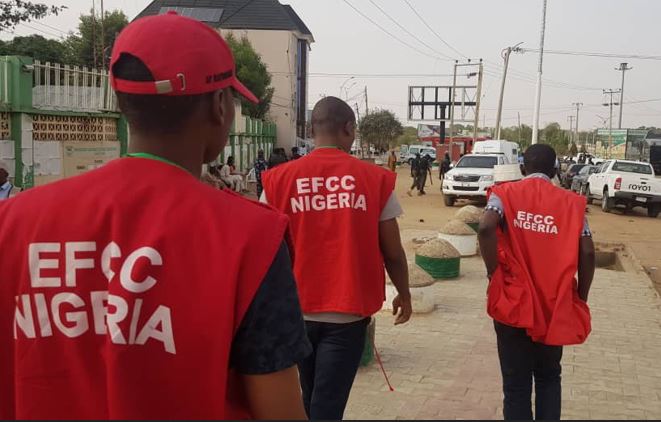The Economic Financial Crimes Commission (EFCC) recently intensified its crackdown on Bureau De Change (BDC) operators across several states in Nigeria, including Abuja, Lagos, Kano, and Port Harcourt.
These raids occurred amidst a further weakening of the naira against the United States dollar in both the official and parallel foreign exchange markets.
The Nigerian government has been making renewed efforts to address the recent decline of the naira against the US dollar.

Currency speculators in the forex markets and the digital cryptocurrency space have been cited as contributing to the pressure on the naira, with the government accusing crypto traders of speculation against the national currency.
Last week, EFCC operatives arrested some BDC operators in Abuja for allegedly speculating against the naira. Despite resistance, law enforcement officials continued to conduct raids on unauthorized currency traders, disrupting market activities in major cities.
The raids have created fear among currency traders, leading to reduced trading activities. The naira was reported to be bought and sold at rates around N1,520/$ and N1,540/$.
The President of the Association of Bureau De Change Operators confirmed the raids, stating that while the EFCC primarily targeted street traders, some registered BDC operators were also affected. He emphasized the government’s efforts to address illegal practices and expressed optimism that the currency would appreciate over time.
In the parallel market, the naira closed at N1,540 per dollar, representing a depreciation compared to previous rates. The depreciation has been attributed to various factors, including a shortage of dollars due to the repatriation of funds by foreign portfolio investors.
The renewed depreciation of the naira follows a period of temporary stability attributed to interventions by the Central Bank of Nigeria (CBN). However, economists highlight the need for fundamental FX liquidity policies to strengthen the naira, including increased FX inflow through exports and foreign capital inflow.
Members of the Organized Private Sector, including the Manufacturers Association of Nigeria and the Lagos Chamber of Commerce and Industry, expressed concerns over the impact of currency depreciation on business operations. They emphasized the need for stability in the exchange rate to avoid price hikes and maintain predictability in business models.
Meanwhile, foreign portfolio outflows on the Nigerian Exchange Limited increased in the first quarter of 2024, indicating investor concerns and contributing to the challenges facing the naira.
In summary, the recent raids on BDC operators, coupled with the ongoing depreciation of the naira, reflect the challenges facing Nigeria’s foreign exchange market and the efforts of the government and stakeholders to address them.
Support InfoStride News' Credible Journalism: Only credible journalism can guarantee a fair, accountable and transparent society, including democracy and government. It involves a lot of efforts and money. We need your support. Click here to Donate
